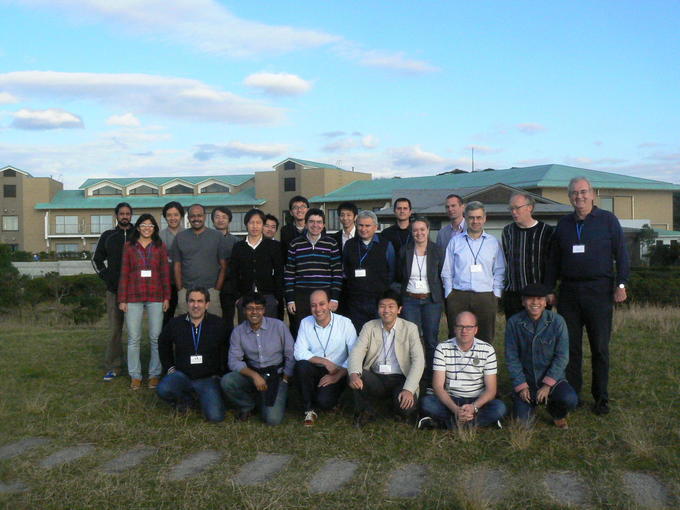NO.038 Cognitive Social Robotics: Intelligence based on Embodied Experience and Social Interaction
November 11 - 14, 2013 (Check-in: November 10, 2013 )
Organizers
- Tetsunari Inamura
- National Institute of Informatics, Japan
- Tamim Asfour
- Karlsruhe Institute of Technology, Germany
- Sethu Vijayakumar
- University of Edinburgh, UK

Overview
Understanding mechanisms underlying intelligence of human beings and animals is one of the key approaches towards developing intelligent robot systems. Since the mechanisms of such real-life intelligent systems are so complex, physical interactions between agents and their environment and the social interactions between agents should be considered. On the other hand, the interactions between robots, autonomous systems, their environments and people at various scales present some of the most sophisticated scientific challenges we must solve to realize the next generation of robots. Comprehension and knowledge in many related fields such as cognitive science, developmental psychology, brain science, evolutionary biology, and robot engineering is also required - making a case for strong interdisciplinary interaction of minds for implementing this approach.
In this decade, an academic field named cognitive developmental robotics has been formalised with these aims. This approach focuses on embodied intelligence which is one of the deficient points in GOFAI (Good Old Fashioned Artificial Intelligence). While huge strides are being made in cognitive robotics, the quality and performance of the robots’ intelligence is yet to match the versatility of human counterparts.
One of the reasons for this deficiency is that perhaps we do not yet fully exploit the interactions and embodiment, both in the physical and social (and virtual) domain. One of the difficulties is huge cost of collecting embodied and social experience due to limitation of robots’ operating time, robustness and limited opportunity of social interaction with humans due to limits in deployment. A promising direction is to accelerate the development of intelligence from large-scale long-term, persistent embodied experience we term ‘big social experiences’ - addressing many of the issues analogous to the ‘Big Data’ challenges in Informatics.
This Shonan meeting focuses on synthetic research in cognitive social robots, building on the premise that intelligence develops based on physical embodied interaction between body and environment, social interaction between agents and human, with the aim to address both the following aspects:
(a) Exploiting Physical Embodiment and Interaction: Actuators, Control, Multi-contact Planning, Natural Dynamics and Design
(b) Networked Social Intelligence: Networked interactions, Multi-agent systems, Software for connectivity, Emergent Capabilities
To foster this, we aim for interdisciplinary discussions with wide viewpoint from various research fields such as cognitive science, developmental psychology, brain science, and not just robotics. The scope of this meeting will include human-robot interaction, machine learning, cognitive science, simulation technology for long-term large scale interaction, learning by demonstration, human biomechanics, multimodal sensory experience (auditory, speech, gestures). One of the target applications as material for the discussion would be acquisition of knowledge and skills from natural interaction between embodied agents and human beings; however, this meeting would like to touch on other future big challenges related to the cognitive social robotics with a broad perspective
